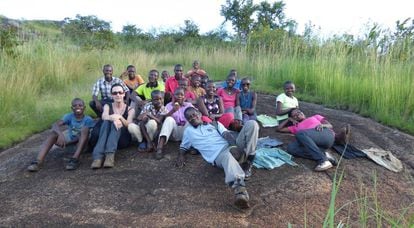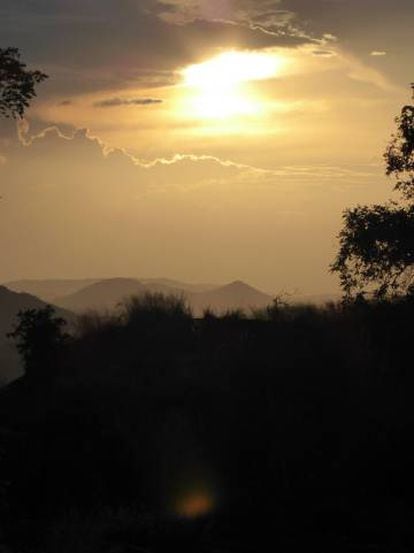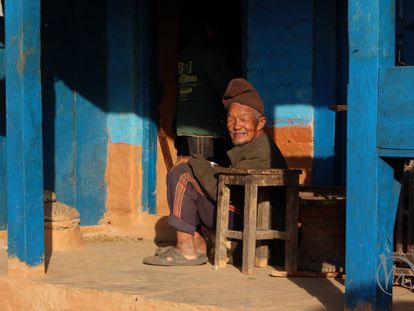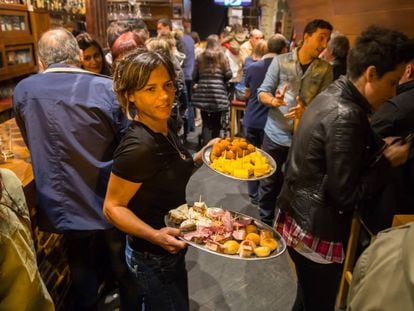Going bananas off the beaten track in Uganda
Local matriarchs encourage visitors to venture beyond wildlife parks and sample authentic grassroots hospitality with the power to lift communities out of poverty

When I told my two daughters I was going to Uganda, they fell about laughing. “If you eat a banana, you have to video it!” they cried. Let me explain. Due to some weird childhood trauma I can’t quite recall, I do what I can to avoid bananas with varying degrees of success. Now, you might think this apparently innocuous fruit would be the least of my concerns traveling as a woman alone in a country that produced the syphilis-addled Last King of Scotland, Idi Amin, and the crazed Joseph Kony, whose army of abducted child soldiers terrorized the north until 2006. But not a bit of it. As I hopped from one village to another, my only real worry was how inevitable the video was beginning to seem.
A recognizably safer and cheaper option than its higher-profile neighbors, Kenya and Tanzania, Uganda pulls in millions of dollars every year from visitors who come for its 10 spectacular national parks. And, despite my focus on community tourism as a means of self-reliance in developing regions, I couldn’t fly all the way from Madrid to this wildlife mecca without at least a glimpse of what has helped to make it in Churchill’s words “The Pearl of Africa.” So I drove northwest from Kampala to Murchison Falls where the River Nile thunders through a seven-meter gorge and got myself some eye candy in the shape of elephants, hippos and chimpanzees before looking beyond the animal kingdom toward the rich local culture.

Just 100 meters from the park, children played unsupervised on the side of the road that was, as is often the case here, no more than a dirt track. With easy smiles, they ran around in threadbare hand-me-downs, oblivious to the land cruisers that hammered past at full tilt in their rush to see the flora and fauna on the other side of the park gate.
My eyes popped. Pedestrians appeared to survive on a song and a prayer in this country. Life is cheap – a phrase that can be interpreted both ways. “A lot of people don’t have money here,” explained Ednah Vyabali Vyalemi – a quiet tour de force who skippers the Boomu Women’s Community Campsite – when asked about the benefits of living close to the park. “They eat what they grow around them. They rent an acre of land and that can be enough to feed them, but sometimes the baboons from the park eat the crops. The children can’t study because they have no electricity. They speak about aid, but we never see it.”
The Boomu Campsite is situated between the park gate and a village of mud huts with mud floors and no running water or sanitation. Boomu itself offers lodgings in simple banda huts set among colorful gardens, the revenue from which allows Ednah and her friends to put a handful of teenagers through high school. The project also helps villagers by sourcing local produce and providing primary kids with school material in exchange for traditional song and dance performances.

It was, of course, at Boomu that the banana, known locally as matoke, moved into the frame. One of the staples of the Ugandan diet, it is eaten mashed like a potato and grows alongside the endless fields of maize. Swinging a machete casually over her shoulder, Ednah hacked apart a matoke palm with awe-inspiring dexterity and then proceeded to show me how to steam the fruit using every last shred of the felled tree.
I watched with some consternation but was spared the mash, enjoying instead a dinner of rice and eggplant, which Ednah produced with the help of a quartet of local teenage orphans she had taken under her wing.
High-budget tourism doesn’t help people here. The money goes to bank accounts in America
Felix Kamalah from the Uganda Community Tourism Association
“High-budget tourism doesn’t help people here,” says Felix Kamalah from the Uganda Community Tourism Association (UCOTA). “The money goes to bank accounts in America or elsewhere. It’s community tourism that actually does some good.”
Community tourism is growing in Uganda out of sheer necessity and because the people are natural entrepreneurs, foiled mainly by the inertia of politicians who have been in power too long. In fact, Donald Trump’s election victory was met with rejoicing here among those keen to see change as one of his extravagant campaign promises included the removal of the country’s president, Yoweri Museveni, 72.
But in remote communities such as Igayaza, south of Hoima in Kibaale district, no one is looking to politicians to solve their problems.
Igayaza is where the Spanish-Ugandan NGO, Adelante Africa has been operating for the past five years. A strictly non-profit entity, it was borne out of an act of kindness – a group of locals helped a group of passing tourists out of the sludge-like mud that makes the dirt roads all but impassable in the rainy season. Now members of the community have decided to launch a tourism initiative, offering visitors en route from Murchison Falls to national parks such as Kibale Forest and Queen Elizabeth, a cultural experience of what turned out to be disarming authenticity.
Trump’s victory was met with rejoicing as one of his campaign promises included the removal of the country’s president, Yoweri Museveni
In the role of lab rat, I ran through a number of activities, starting with a tour on a boda boda motorbike of the various Adelante Africa projects, including a secondary school, an oil press and water tanks. Sunday meant church, an exhilarating affair with lively singing and drumming and a stack of bananas at the altar. Ugandans are as keen on Christianity as they are on bananas and, on my travels, I spotted the Jesus Cares supermarket, the Good Role God clothes shop and the God Bless You bus route, to mention but a few businesses in league with the Almighty.
At the end of the service, the bananas were auctioned off along with several hens and a few watermelons and the Adelante Africa children’s home, Omwaana Tugende, ended up with the lion’s share of the fruit – fuel for the kids who accompanied me on a hike to the top of a ridge above Igayaza with songs and jokes about snakes and, as dusk fell, small friendly hands to guide me safely home.
“I am trying to get across to communities that any of them can offer tourism activities to supplement their income,” said Maria Baryamujura, the founder of the COBATI community tourism association. “Above all, it is a means of empowering women. The strength of African women is what has kept Africa together. They have produced the food and looked after the families down the centuries. Once the woman has a better income, the family has better nutrition and hygiene.”
Maria’s husband was killed during the Idi Amin era, leaving her to bring up her family single-handed. Now, she dedicates her time to encouraging others to become self-sufficient. Her beat is down on the cattle corridor around Mbarara, midway between Kampala and seven national parks, including the mystical gorilla haven of Bwindi. Being the President’s birthplace, there are signs of investment – the odd electricity line, tarmac roads and the houses, less hovel than I had seen en route. But as I was shown by the Kibingo Community tourism project how to make banana beer with sieves made of grass and pipes made of palm, I was aware that rural Ugandans who make up 80% of the population are pretty much thrown back on their own resources in a way that would paralyze most of us in the West today.
For more information: www.nomadassolidarios.com.

